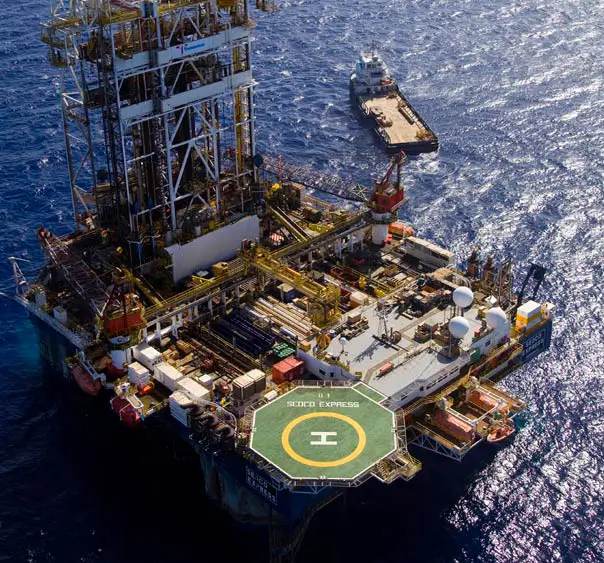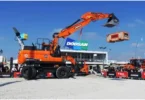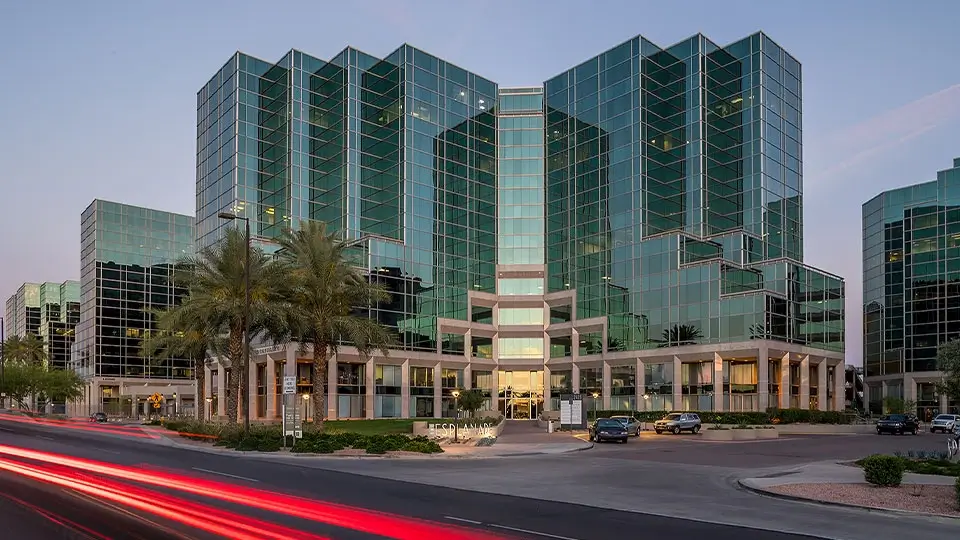Introduction to Delek Group
Founding and Early Years
Delek Group’s story begins in the heart of Israel during the 1950s, a time when the nation was still carving out its industrial identity. Originally founded in 1951 as a small fuel distributor, the company had humble beginnings. Back then, it primarily operated gas stations and focused on the local supply chain. But even in its infancy, Delek had a spark—an ambition to go beyond just delivering fuel.
What made Delek stand out from the very beginning was its strategic positioning. While other companies competed on price and volume, Delek focused on building reliable infrastructure, customer loyalty, and supply reliability. This forward-thinking mentality laid the foundation for what would eventually become a global energy empire.
The real transformation began in the late 1990s when Delek was acquired by Israeli billionaire Yitzhak Tshuva. Under his visionary leadership, the company shifted gears from a regional energy supplier into a diversified conglomerate. From this point on, Delek’s ascent became nothing short of meteoric.
Vision and Mission That Fueled Growth
Behind every successful company lies a mission that goes beyond profit margins. For Delek, the mission was clear from early on—secure energy independence for Israel while pursuing strategic expansion. The Group envisioned becoming a leading player in the energy world, and that vision served as its north star.
One of the core aspects of Delek’s mission was innovation—investing in cutting-edge exploration and drilling technologies, especially as it expanded into offshore gas fields. At the same time, it maintained a strong focus on environmental responsibility, a balance not every oil and gas company manages effectively.
Moreover, Delek wasn’t content with just being another energy supplier. It set out to create a vertically integrated empire—from exploration and drilling to refining, transportation, and even retail fuel services. This wide-ranging strategy played a huge role in its accelerated growth and global reach.
Early Business Focus and Local Success
The Initial Focus on Fuel and Energy Distribution
In its early days, Delek built a robust local network of gas stations and fuel depots across Israel. This was during a time when Israel was growing rapidly, and with that growth came an increased demand for reliable energy. Delek saw the opportunity and seized it with strategic brilliance.
Its local fuel distribution was not just about selling gasoline; it involved managing an efficient logistics chain, offering superior customer service, and ensuring that fuel was available even in remote parts of the country. By doing so, Delek cemented itself as a dependable brand trusted by thousands of Israelis.
What gave Delek an edge in the fuel market was its relentless commitment to modernization. While competitors stuck with conventional operations, Delek invested in automating fuel pumps, modernizing station design, and introducing loyalty programs long before they became industry standard.
Dominance in the Israeli Market
By the late 1990s and early 2000s, Delek had firmly positioned itself as one of Israel’s largest and most recognized energy brands. Its network of service stations expanded significantly, and it acquired several competitors along the way, thereby eliminating much of the competition.
The company also began to vertically integrate its operations—entering the lubricants market, fuel logistics, and even the convenience store sector. This strategy not only increased its profit margins but also gave customers a one-stop-shop experience that was hard to beat.
Delek’s ability to dominate the Israeli market was largely due to its operational efficiency, market agility, and brand recognition. Consumers associated the Delek name with reliability, while policymakers saw it as a key player in Israel’s energy independence. The Group also began lobbying efforts and working with the Israeli government to create mutually beneficial energy policies.
Strategic Expansion and Diversification
Expansion into Real Estate, Infrastructure, and Finance
Delek didn’t just stay confined to the energy sector. Starting in the early 2000s, the Group began diversifying aggressively. One of its first moves was entering real estate through Delek Real Estate, which focused on commercial and residential properties both in Israel and Europe.
This diversification wasn’t random; it was carefully calculated. By investing in income-generating properties, the company created a safety net that would stabilize its earnings even during fluctuations in oil prices. It was also an early adopter of infrastructure investments—funding toll roads, gas pipelines, and water systems.
Additionally, Delek ventured into financial services, acquiring insurance companies and setting up investment arms. These moves allowed it to finance its energy projects in-house, reducing reliance on external funding and making the entire enterprise more financially resilient.
Key Acquisitions That Pushed Delek Forward
Over the years, Delek made a series of high-impact acquisitions that catapulted it into a new league. Perhaps the most game-changing of all was the acquisition of stakes in exploration companies like Avner Oil and Delek Drilling, which later became NewMed Energy.
These acquisitions gave Delek direct control over massive offshore gas fields like Tamar and Leviathan—assets that would become central to Israel’s energy strategy and elevate Delek’s profile globally.
Another pivotal acquisition was the purchase of Chevron’s North Sea assets. This move gave Delek a significant foothold in the European energy market and solidified its status as a global player. By acquiring established, producing assets instead of just speculative plays, Delek ensured it had a steady stream of revenue.
Entering the Global Arena
Delek’s Entry into the North Sea and Eastern Mediterranean
When Delek set its sights on international waters, it didn’t aim small. The Group made headlines with its entry into the North Sea—one of the most mature and competitive oil and gas regions in the world. Through its UK subsidiary Ithaca Energy, Delek acquired Chevron’s assets in the North Sea, including operational fields and development projects.
This was a bold but strategic move. By entering a well-regulated and highly productive market, Delek gained access to stable output, proven reserves, and invaluable industry know-how. The acquisition immediately positioned it as a serious global contender.
Simultaneously, the Eastern Mediterranean became a major focus for Delek, particularly with the discovery and development of the Tamar and Leviathan gas fields. These gas fields are among the largest in the region and have fundamentally altered the geopolitical energy map of the Middle East.
Delek’s operations in the Mediterranean are not just profitable—they’re strategically vital. They have enabled Israel to become an energy exporter, fostering regional partnerships with countries like Egypt and Jordan and reducing reliance on external energy sources.
The Tamar and Leviathan Gas Fields
Few discoveries have been as transformative for a country as the Tamar and Leviathan gas fields have been for Israel—and Delek played a starring role in both. These fields contain trillions of cubic feet of natural gas, enough to meet Israel’s energy needs for decades and export substantial quantities abroad.
Delek, through its subsidiary NewMed Energy, co-owns these fields and has been instrumental in their development. The Tamar field started production in 2013, while Leviathan followed in 2019. Together, they turned Israel from an energy-dependent nation into an energy-exporting powerhouse.
These gas fields also brought regional stability and cooperation. Delek signed long-term supply agreements with Egypt, Jordan, and even discussions with the EU, giving Israel a soft power tool it never had before. The revenue generated from these fields also fuels Delek’s ongoing expansion efforts.
Technological Innovation and Sustainability
Integrating Technology in Energy Exploration
One of the key reasons behind Delek Group’s meteoric rise has been its embrace of cutting-edge technology in the exploration and extraction of energy resources. From seismic imaging to deepwater drilling, Delek has consistently stayed at the forefront of innovation in the oil and gas sector.
When the company began exploring offshore fields like Tamar and Leviathan, it wasn’t operating in shallow waters or easy conditions. It had to use advanced 3D seismic data analysis to locate and map resources hidden thousands of meters below the seabed. Delek invested heavily in tech partnerships and engineering talent, ensuring it had the capability to carry out such complex operations.
Beyond exploration, Delek has adopted real-time monitoring systems across its offshore platforms. These systems provide constant data on pressure, temperature, and equipment performance, allowing engineers to detect anomalies and prevent downtime or disasters. This not only maximizes output but also significantly enhances safety.
Another technological edge comes from digital twin technology. By creating a virtual model of a gas platform or processing plant, Delek can run simulations, predict maintenance needs, and optimize operations. This minimizes operational risk and maximizes asset life.
By committing to such advanced technologies, Delek has not only enhanced its operational efficiency but also reduced environmental impact. Precise drilling techniques, for instance, minimize the disturbance of marine ecosystems, while predictive maintenance reduces the risk of leaks or equipment failure.
Delek’s Green Initiatives and ESG Commitment
Despite operating in the fossil fuel sector, Delek Group has made significant strides toward becoming a more sustainable enterprise. Environmental, Social, and Governance (ESG) principles are now deeply embedded in its corporate strategy.
One of Delek’s most notable green initiatives is its investment in carbon capture and storage (CCS) technologies. The company is working with partners to explore how captured CO2 from industrial processes can be stored underground safely. It’s an ambitious move aimed at reducing emissions from gas extraction and production activities.
Moreover, Delek has started assessing renewable energy projects, particularly in solar and offshore wind. Though still in the early stages, the Group has signaled its intent to participate in the energy transition and reduce its carbon footprint. It’s a slow pivot, but one that aligns with long-term global energy trends.
Social responsibility is another pillar of Delek’s ESG strategy. The company funds community development projects, educational initiatives, and local employment programs in regions where it operates. For instance, it has created job opportunities and training programs in underdeveloped areas of Israel and the Eastern Mediterranean.
On the governance front, Delek has implemented robust compliance and transparency measures. Regular audits, sustainability reporting, and stakeholder engagement ensure that its operations meet international standards. These efforts have helped the company improve its reputation in both domestic and international markets.
Financial Performance and Market Position
Revenue Growth and Global Rankings
Delek Group’s financial journey is nothing short of remarkable. From a modest local fuel supplier to a multibillion-dollar global energy conglomerate, the numbers tell a story of aggressive expansion, smart acquisitions, and resilient strategy.
In the last decade, Delek’s revenue has surged, largely driven by its stake in high-yielding assets like the Leviathan gas field and its North Sea ventures. The Group consistently posts billions in annual revenue, with net income reflecting solid returns even amidst volatile oil prices.
One of the key factors behind Delek’s strong financials is its diversified asset base. While a significant portion of its earnings come from natural gas, the company also generates revenue from insurance, real estate, and retail operations. This diversification cushions it from energy market shocks and ensures a steady cash flow.
Delek’s global standing has also risen. It is now listed on major stock exchanges, and its subsidiaries, such as NewMed Energy and Ithaca Energy, have gained independent recognition. Analysts across the board view Delek as a heavyweight in the energy sector, often comparing it with European mid-cap energy companies like OMV and ENI.
Furthermore, Delek’s strategic debt restructuring and divestment of non-core assets have helped it maintain a healthy balance sheet. This financial discipline has given the Group enough room to reinvest in high-growth opportunities and reward shareholders with dividends and stock buybacks.
Performance Amidst Global Oil Market Fluctuations
The oil and gas market is notoriously volatile, and the last few years have been a rollercoaster ride—with COVID-19 disruptions, geopolitical tensions, and fluctuating oil prices. Despite this, Delek has shown an impressive ability to adapt and remain profitable.
During the 2020 oil crash, Delek took proactive steps by trimming down its operating costs, delaying non-essential capital expenditures, and focusing on core operations. Its ability to sustain production from low-cost assets like Leviathan proved crucial in weathering the storm.
When oil prices rebounded, Delek capitalized quickly. It ramped up production, secured new export contracts, and boosted shareholder value through strategic reinvestments. The result was a strong post-pandemic recovery that outpaced many of its regional peers.
Another element of Delek’s resilience is its exposure to natural gas—a resource that has shown relatively stable pricing compared to oil. With rising global demand for cleaner alternatives to coal and oil, natural gas has become a cornerstone of Delek’s financial strategy.
Even with inflationary pressures and regulatory challenges, Delek’s robust financial planning and asset management have enabled it to remain agile. It continues to report strong EBITDA margins, maintain healthy leverage ratios, and invest in future-ready projects.
Challenges Faced by Delek Group
Regulatory Pressures and Environmental Concerns
Operating in the energy sector comes with a slew of regulatory challenges, and Delek is no exception. From drilling permits and environmental impact assessments to carbon regulations and antitrust laws, the company must constantly navigate a maze of compliance.
One of the biggest hurdles came when Israeli regulators required Delek to reduce its monopoly over gas assets. As part of the “Gas Framework Agreement,” Delek was forced to divest from the Tamar gas field to ensure market competitiveness. While this move was politically motivated, it had financial and operational implications for the Group.
Additionally, Delek faces intense scrutiny from environmental watchdogs. As offshore drilling gains prominence, concerns about oil spills, marine disruption, and air pollution become more pronounced. The company must allocate resources for environmental risk mitigation, which can delay projects and inflate costs.
International operations also bring unique regulatory environments. The North Sea region, for example, enforces some of the world’s strictest health, safety, and environmental standards. Delek must stay on top of evolving laws and adapt to jurisdiction-specific rules to avoid fines or operational halts.
Despite its efforts to implement ESG standards, critics argue that Delek’s progress on environmental fronts is slower than needed. The pressure to accelerate its renewable energy transition is mounting, especially as more institutional investors demand greener portfolios.
Managing Debt and Financial Risks
While Delek has delivered strong revenues, it has also carried significant debt—particularly due to its aggressive expansion strategy and major acquisitions. Managing this debt load without compromising operational liquidity remains a key challenge.
In the past, credit agencies have downgraded Delek’s ratings over concerns about leverage and repayment capacity. These downgrades affected investor confidence and raised borrowing costs, forcing the Group to implement tighter fiscal controls.
To tackle this, Delek launched several divestment programs, selling off non-core assets and redirecting capital toward high-performing ventures. This not only improved its credit metrics but also allowed the company to focus on its most profitable business lines.
The volatility in global commodity prices further complicates debt management. Unexpected dips in oil or gas prices can disrupt cash flow projections, making it difficult to service long-term debt. Delek must constantly hedge its positions, manage interest rates, and maintain a buffer of liquidity to stay afloat.
The company’s ability to balance growth with fiscal discipline will determine its long-term viability. Analysts are cautiously optimistic, citing recent improvements in its debt-to-equity ratio and its strategic pivot toward more predictable revenue streams like natural gas exports.
Strategic Partnerships and Alliances
Collaborations with Global Energy Giants
One of the smartest moves Delek Group has made in its journey from local operator to global powerhouse is its strategy of forging powerful alliances. In the energy industry, going it alone rarely leads to success—especially when dealing with multi-billion-dollar offshore projects. Delek understood this early and has strategically partnered with some of the world’s leading energy companies.
In the development of the Tamar and Leviathan gas fields, Delek worked alongside industry heavyweights like Noble Energy (now part of Chevron). These partnerships weren’t just about funding; they brought technical expertise, risk-sharing, and global credibility. It allowed Delek to accelerate development and secure major export deals that would have been harder to land independently.
In the North Sea, through its subsidiary Ithaca Energy, Delek engaged in joint ventures with companies like BP and Shell, further cementing its standing among international peers. These partnerships helped Delek leverage best-in-class technologies and practices in one of the world’s most regulated and mature energy basins.
These alliances are not just operational—they’re strategic. By forming joint ventures with regional players in Egypt, Jordan, and Cyprus, Delek has used its energy assets to build geopolitical influence. These partnerships serve diplomatic as well as business purposes, helping stabilize the region while boosting Delek’s export potential.
Strategic collaborations have also extended to finance and logistics. Delek has partnered with global investment banks and infrastructure developers to raise capital, build export terminals, and lay undersea pipelines. Such ecosystem-level collaborations are a key reason behind Delek’s impressive global ascent.
The Importance of Regional Diplomacy
Energy is not just an economic resource; it’s a political weapon. Delek Group has proven adept at navigating the complex diplomatic terrain of the Middle East, using its gas assets as a tool for building peace and cooperation.
Its long-term export contracts with Egypt and Jordan mark some of the most significant diplomatic milestones in the region. These agreements, which were once unthinkable due to geopolitical tensions, became possible thanks to shared economic interests—and Delek was at the center of it all.
Delek’s involvement in these deals elevated its status beyond that of a business entity. It became a symbol of regional cooperation, and its executives were often involved in high-level negotiations between governments. The Group’s ability to maintain relations with multiple countries—some with historically tense relationships—is a testament to its diplomatic acumen.
Additionally, Delek has played a key role in the Eastern Mediterranean Gas Forum (EMGF), an intergovernmental organization aimed at promoting cooperation among gas-producing countries in the region. Delek’s influence in this forum strengthens Israel’s energy diplomacy and positions the company as a policy shaper.
These diplomatic efforts have real-world impacts. They ensure stable export routes, reduce regulatory friction, and open up new market opportunities—advantages that few energy companies can claim at such a scale.
The Role of Leadership
The Influence of Yitzhak Tshuva
No discussion about Delek Group’s rise would be complete without mentioning the man behind its transformation—Yitzhak Tshuva. The Israeli billionaire and real estate mogul acquired Delek in the late 1990s and fundamentally altered its course.
Tshuva brought with him not just capital but a bold vision. He saw energy as more than just a domestic utility service; he saw it as a gateway to global influence. His aggressive acquisition strategy, risk-taking in offshore exploration, and diversification into real estate and finance all stemmed from a long-term vision for Delek.
What made Tshuva truly exceptional was his ability to rally stakeholders. From investors to government regulators, from engineers to financial analysts—Tshuva knew how to bring people on board with his grand plans. His leadership style blended charisma with calculation, making him both respected and feared in the business community.
Tshuva was also instrumental in pushing the Leviathan project forward despite regulatory hurdles and environmental opposition. His persistence and negotiation skills helped secure financing and political backing for what became Israel’s largest energy infrastructure project.
Though he has gradually stepped back from day-to-day operations, Tshuva’s legacy continues to shape the Group’s culture and strategy. His entrepreneurial spirit remains embedded in Delek’s DNA—a legacy of ambition, resilience, and bold thinking.
Executive Decisions That Defined Delek’s Trajectory
While Tshuva laid the foundation, the executive team at Delek made the moves that turned potential into performance. Strategic decisions like forming Ithaca Energy, acquiring Chevron’s North Sea assets, and launching export pipelines to Egypt didn’t happen by accident—they were part of a well-executed roadmap.
One such decision was to restructure the company’s holdings by spinning off Delek Drilling into NewMed Energy. This move allowed for a clearer corporate structure, better market valuation, and focused management of offshore assets. It was a textbook example of how to unlock shareholder value through smart corporate engineering.
Another critical decision was to scale back on the more volatile real estate ventures and redirect resources toward high-margin, recurring revenue projects in energy. This shift significantly improved the company’s balance sheet and risk profile.
Additionally, Delek’s leadership demonstrated excellent timing during the COVID-19 pandemic. While many companies were paralyzed by uncertainty, Delek trimmed operational fat, renegotiated contracts, and came out of the crisis leaner and more focused.
These executive decisions—large and small—demonstrate that success in the energy sector isn’t just about having assets. It’s about how you manage, position, and evolve them. Delek’s leadership has consistently shown that they have the strategic foresight and execution capability to thrive in a fast-changing world.
Socioeconomic Impact in Israel and Abroad
Employment and Infrastructure Contributions
Delek Group’s influence goes far beyond profit margins and oil rigs—it has had a massive socioeconomic impact in Israel and the regions it operates in. One of the most direct contributions is employment. From offshore platform workers to logistics operators, engineers, analysts, and retail staff, Delek has created thousands of jobs.
In Israel, Delek is one of the largest private employers in the energy sector. It has played a crucial role in developing a skilled workforce in offshore drilling, a field that barely existed in the country before the discovery of Tamar and Leviathan. The company has also invested in education and training programs, particularly in engineering and geophysics, to ensure a pipeline of local talent.
Beyond employment, Delek’s infrastructure investments have transformed regions. The construction of processing plants, export pipelines, and service stations has boosted local economies and connected previously underdeveloped areas to energy grids.
Abroad, the impact is equally significant. In Egypt, for example, Delek’s gas exports have revitalized dormant LNG terminals and created jobs. In Jordan, reliable energy imports from Delek have helped stabilize electricity prices and reduce reliance on expensive imports.
In Cyprus and the broader Mediterranean region, Delek’s exploration activities have attracted foreign investment and sparked interest in offshore development. These projects often bring with them roads, ports, and other infrastructure improvements that benefit local communities.
Influence on Energy Independence in the Middle East
Perhaps the most transformative impact Delek has had is on regional energy independence. Before the discovery of Tamar and Leviathan, Israel was heavily reliant on energy imports. Today, it is not only self-sufficient but also an exporter—thanks in large part to Delek.
This shift has strategic implications. Energy independence reduces vulnerability to global supply shocks and strengthens national security. It also gives Israel leverage in regional negotiations, trade agreements, and diplomatic engagements.
Delek’s role in exporting gas to neighboring countries has furthered peace-building efforts in the Middle East. Energy cooperation has served as a neutral ground for dialogue, helping thaw relations between historically tense nations.
Additionally, Delek’s operations have inspired similar exploration activities in Lebanon, Egypt, and Cyprus, creating a ripple effect that is gradually turning the Eastern Mediterranean into a new global energy hub. By spearheading this movement, Delek has redefined the region’s geopolitical and economic landscape.
Future Prospects and Growth Strategy
Exploration in New Markets
As Delek Group looks to the future, its eyes are set on new frontiers. The company’s appetite for expansion is far from satisfied. One of the primary strategies for future growth lies in exploring untapped markets, particularly in Africa, Southeast Asia, and Latin America—regions rich in natural resources but often lacking the infrastructure and investment to fully exploit them.
In Africa, countries like Mozambique, Angola, and Ghana are on Delek’s radar. These nations have shown promising geological surveys, and Delek is assessing potential entry points through partnerships or bidding in upcoming exploration rounds. The company’s experience in offshore drilling gives it a significant advantage in these emerging energy markets.
Latin America, especially Brazil and Guyana, has also attracted Delek’s interest due to large offshore reserves and favorable investment conditions. By leveraging its North Sea expertise and capital reserves, Delek is in a strong position to bid on assets and build new ventures in these regions.
Aside from upstream exploration, Delek is investing in downstream infrastructure—LNG facilities, refineries, and export pipelines—in regions where it can add value. These integrated projects allow the company to control the supply chain and maximize profitability.
Strategically, this global expansion serves another purpose: diversification. By spreading its operations across continents, Delek can hedge against geopolitical risks and market fluctuations. It’s a long-term play that aims to future-proof the business against energy transitions and global shocks.
Adapting to the Future of Renewable Energy
No energy company can ignore the global pivot toward sustainability and renewable energy. Delek recognizes this shift and is adapting its business model accordingly. While fossil fuels remain its core, the Group is gradually building a portfolio of renewable assets and low-carbon technologies.
Solar energy is a primary focus area. Delek has begun investing in large-scale solar farms in Israel and is actively exploring opportunities abroad. With its financial strength and existing infrastructure, the Group has the capacity to quickly scale up its solar initiatives.
Offshore wind is another promising avenue. Leveraging its offshore engineering capabilities from oil and gas, Delek is exploring wind farm projects in the Mediterranean and the North Sea. These projects are still in feasibility stages, but early investments suggest serious intent.
The Group is also looking into hydrogen fuel technology and battery storage systems—two key components of the future energy mix. It has formed exploratory partnerships with tech firms and research institutes to develop pilot programs in these emerging sectors.
In short, Delek is not just reacting to the energy transition—it’s preparing to lead. By aligning its strategy with global climate goals, it’s setting itself up to remain relevant and profitable in a carbon-constrained world.
Delek’s Brand and Reputation
Public Perception and Media Coverage
Public perception plays a critical role in shaping the success of any major corporation, and Delek Group has had its share of highs and lows in this area. In Israel, Delek is viewed as a national asset—a symbol of economic resilience and energy independence. Its discoveries in Tamar and Leviathan have made it a household name, often cited in political speeches and national pride campaigns.
However, the company has also faced criticism. Environmental groups and activists have frequently challenged Delek’s offshore drilling activities, citing ecological risks and insufficient transparency. These criticisms have occasionally sparked public protests and media scrutiny, putting pressure on Delek to enhance its ESG credentials.
Internationally, Delek is gaining recognition as a serious player in the energy world. Its deals with Chevron, BP, and other global giants have earned it coverage in prestigious publications like The Financial Times and Bloomberg. These stories often highlight its strategic agility and rapid growth from a local operator to an international contender.
To manage its brand, Delek has invested in public relations, social responsibility initiatives, and transparent reporting. Its annual sustainability reports and community engagement programs aim to build trust and foster goodwill among stakeholders.
Crisis Management and Transparency
Reputation management is about more than just good press—it’s about how a company handles crises. Delek has had to weather its fair share of storms, from oil price crashes to political pushbacks and environmental controversies.
The company’s crisis management strategy hinges on swift communication, internal audits, and stakeholder reassurance. When Delek was forced to divest from the Tamar field due to monopoly concerns, it handled the matter with strategic clarity—communicating the rationale to investors and outlining a forward-looking plan that kept confidence high.
Environmental incidents, though limited, have been addressed transparently. Delek routinely engages third-party environmental auditors and publishes findings in its ESG reports. This openness helps mitigate backlash and maintain regulatory compliance.
Another critical component of Delek’s transparency is financial disclosure. The company adheres to international accounting standards and issues detailed quarterly reports. Investors and analysts praise this transparency, which provides assurance even in volatile markets.
Ultimately, Delek’s brand strength lies in its ability to learn, adapt, and communicate effectively. It’s a brand that reflects resilience and ambition—two traits that will continue to define its legacy.
Competitive Landscape
Comparing Delek with Other Global Energy Firms
In the global energy arena, Delek Group is still considered a mid-cap player—but one that punches well above its weight. When compared with supermajors like ExxonMobil, Chevron, or Shell, Delek’s revenues and reserves are modest. However, what it lacks in scale, it makes up for in agility and strategic focus.
Unlike the supermajors, Delek doesn’t spread itself thin across dozens of countries. Instead, it focuses on high-impact regions where it can be a dominant player—like the Eastern Mediterranean and the North Sea. This niche approach has allowed it to avoid the red tape and inefficiencies that often plague larger firms.
Another area where Delek shines is cost control. Its projects often come in below industry-average production costs, thanks to efficient management and streamlined operations. This gives it a significant advantage in times of price volatility.
Delek’s competitive edge also stems from its ability to move quickly. While larger companies require layers of approvals for major decisions, Delek can pivot faster—whether it’s securing a new exploration license or renegotiating a trade deal.
In essence, Delek competes not by scale but by strategic precision. It picks its battles carefully, invests heavily in core assets, and builds alliances that amplify its influence.
Unique Advantages of the Delek Group
Delek Group’s unique strengths lie in its strategic positioning, technological adoption, and geopolitical relevance. Few energy firms have the blend of regional influence and international reach that Delek commands.
Its ownership of cornerstone assets like Leviathan gives it long-term revenue security, while its strategic partnerships reduce operational risks. Add to that its vertically integrated business model—from drilling to retail—and you have a company that controls its destiny in ways few others can.
Delek’s ability to operate across both developed markets (like the UK) and emerging markets (like Egypt) shows its adaptability. Its leadership has proven capable of managing cross-border complexities, regulatory differences, and cultural nuances—a skill set that becomes more critical as globalization intensifies.
Moreover, its balanced portfolio—combining fossil fuels, renewables, and infrastructure—positions it as a transitional energy company. Delek isn’t stuck in the past, nor is it betting blindly on the future. It’s navigating the energy evolution with calculated steps and smart investments.
Conclusion
From a modest fuel distributor in Israel to a global energy titan, Delek Group’s rise is a story of ambition, adaptability, and relentless drive. Through strategic acquisitions, bold leadership, and a deep understanding of regional dynamics, Delek has not only transformed itself but also helped reshape the energy landscape of the Eastern Mediterranean.
Its story is still being written. With new markets on the horizon, ongoing investments in renewable energy, and a track record of navigating complex geopolitical environments, Delek is poised for even greater achievements. While challenges remain—regulatory hurdles, environmental responsibilities, and global energy shifts—the Group’s ability to innovate and evolve makes it a company to watch in the decades to come.
FAQs
What industries does Delek Group operate in?
Delek Group operates in energy (oil and gas exploration and production), infrastructure, real estate, financial services, and retail fuel distribution. Its core business is energy, but it maintains a diversified portfolio.
How did Delek Group enter the international market?
Delek expanded internationally through strategic acquisitions, notably by acquiring Chevron’s North Sea assets via its subsidiary Ithaca Energy, and by forming partnerships in the Eastern Mediterranean and Europe.
What is Delek Group’s stance on renewable energy?
Delek is gradually embracing renewable energy. It has initiated investments in solar and offshore wind, explored carbon capture technologies, and aligned with ESG principles to ensure a more sustainable future.
Who owns Delek Group?
Delek Group was acquired by Yitzhak Tshuva in the late 1990s. Although he has sold portions of his stake, he remains a key figure behind the company’s strategy and transformation.
What is Delek’s impact on Israel’s economy?
Delek has played a crucial role in Israel’s energy independence, job creation, infrastructure development, and GDP growth. Its offshore gas discoveries significantly reduced Israel’s reliance on imported energy.
📌 Liked this article? Subscribe to GBWApp Blog for more behind-the-scenes stories from the world of global business, innovation, and strategy!







